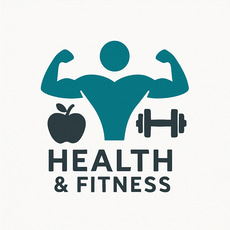Personal Hygiene 101: The Basics Everyone Should Know
Personal Hygiene 101: The Basics Everyone Should Know" offers simple tips on daily routines, handwashing, oral care, skincare, and managing body odor for a healthier, more confident you
PERSONAL HYGIENE & SANITATION
5/12/20253 min read
Personal Hygiene 101: The Basics Everyone Should Know
Maintaining good personal hygiene isn’t just about looking presentable—it’s a fundamental part of staying healthy. Daily hygiene habits help prevent illness, boost confidence, and support mental and physical well-being. Whether you're reviewing the basics or building better routines, understanding personal hygiene is essential for people of all ages.
In this guide, we’ll break down the key areas of personal hygiene, why they matter, and how to implement simple, effective practices into your everyday life.
Why Personal Hygiene Matters
At its core, personal hygiene refers to the practices that help individuals care for their body and maintain cleanliness. Good hygiene helps:
Prevent infections and disease
Reduce body odor
Improve appearance and confidence
Support social interactions
Promote long-term health
Neglecting personal hygiene can lead to skin infections, dental problems, and a higher risk of spreading illness to others.
1. Oral Hygiene
Your mouth is a gateway to the rest of your body, making dental care one of the most important hygiene habits.
Daily practices:
Brush teeth at least twice a day with fluoride toothpaste
Floss once daily to remove food particles and plaque
Replace toothbrush every 3–4 months
Visit a dentist regularly (usually every 6 months)
Good oral hygiene prevents cavities, gum disease, and bad breath. It's also linked to reduced risks of heart disease and diabetes.
2. Hand Hygiene
Hands come into contact with countless surfaces and bacteria throughout the day. Proper handwashing is a key line of defense against illness.
Best practices:
Wash hands with soap and water for at least 20 seconds
Scrub between fingers, under nails, and around wrists
Use hand sanitizer with at least 60% alcohol when soap isn’t available
Wash hands before eating, after using the bathroom, or after coughing/sneezing
Hand hygiene significantly reduces the spread of germs, especially in public spaces or healthcare environments.
3. Body Hygiene
Regular bathing helps remove sweat, dirt, dead skin cells, and bacteria. It also helps prevent body odor and skin irritation.
Body hygiene basics:
Shower or bathe regularly, depending on activity level and climate
Use mild soap and warm water
Wash armpits, feet, and groin thoroughly
Wear clean clothes daily
Change undergarments and socks after each wear
Excessive washing can strip the skin of natural oils, so balance is key—especially for those with sensitive skin.
4. Hair Care
Scalp and hair hygiene play a role in both comfort and appearance.
Tips for healthy hair:
Wash hair regularly to remove oil, dirt, and buildup
Frequency varies by hair type—some need daily washing, others only a few times per week
Use conditioner to prevent dryness
Avoid excessive heat styling or harsh chemicals
Clean hair and a healthy scalp can prevent dandruff, irritation, and hair thinning.
5. Nail Hygiene
Fingernails and toenails can harbor bacteria and dirt if not cleaned and trimmed regularly.
Nail care routine:
Keep nails clean and dry
Trim nails straight across with clean clippers
Avoid biting nails or picking cuticles
Clean under nails with a brush
Well-maintained nails are not just aesthetically pleasing—they also reduce the risk of fungal infections and injury.
6. Menstrual Hygiene (for Those Who Menstruate)
Menstrual hygiene is essential for comfort, cleanliness, and preventing infections.
Key practices:
Change sanitary products (pads, tampons, cups) regularly—every 4 to 8 hours
Wash genital area daily with water (avoid harsh soaps or douches)
Dispose of used products properly
Keep reusable items (like menstrual cups) clean and sanitized
Good menstrual hygiene empowers confidence and reduces discomfort throughout your cycle.
7. Foot Hygiene
Feet are prone to sweating and bacteria, especially in closed shoes or during workouts.
Foot hygiene habits:
Wash feet thoroughly, especially between toes
Dry feet completely to avoid fungal infections
Change socks daily
Wear breathable shoes and alternate pairs regularly
Treat athlete’s foot promptly if it appears
Healthy feet support mobility and comfort in daily life.
8. Genital Hygiene
Both men and women should practice proper care of their genital area.
General tips:
Use warm water to clean the area daily
Avoid strong soaps, perfumes, or powders
Wear breathable, cotton underwear
Practice safe sex and get regular sexual health screenings
Maintaining genital hygiene can help prevent infections, irritation, and discomfort.
9. Clothing Hygiene
Wearing clean clothes is part of staying fresh and preventing body odor.
Clothing hygiene basics:
Wash clothes after sweating or heavy wear
Change underwear and socks daily
Don’t re-wear gym clothes without washing
Launder bedding and towels weekly
Clean clothing complements other hygiene habits and contributes to better skin health.
10. Hygiene in Shared Spaces
Whether you’re at school, work, or the gym, being mindful of cleanliness in public or shared environments is respectful and important.
Etiquette tips:
Wipe down gym equipment after use
Don’t share personal items like razors or towels
Cover your mouth when coughing or sneezing
Disinfect your phone and keyboard regularly
Being hygiene-conscious in shared spaces helps protect everyone’s health.
Building a Personal Hygiene Routine
Start small and build consistency. Here’s a sample daily hygiene checklist:
Brush and floss teeth
Wash face and shower
Apply deodorant
Wear clean clothes
Wash hands frequently
Care for nails and feet
Clean personal devices and shared surfaces
For kids, teens, or anyone learning new routines, visual schedules and reminders can help reinforce habits.
Final Thoughts
Personal hygiene is more than just a routine—it’s a daily investment in your health, confidence, and well-being. By practicing good hygiene in every area of your life, you reduce the risk of illness, feel more comfortable in social settings, and maintain a cleaner, healthier environment for yourself and those around you.
No matter your age or lifestyle, it’s never too late to improve your hygiene habits. Start with the basics, stay consistent, and your body will thank you.
